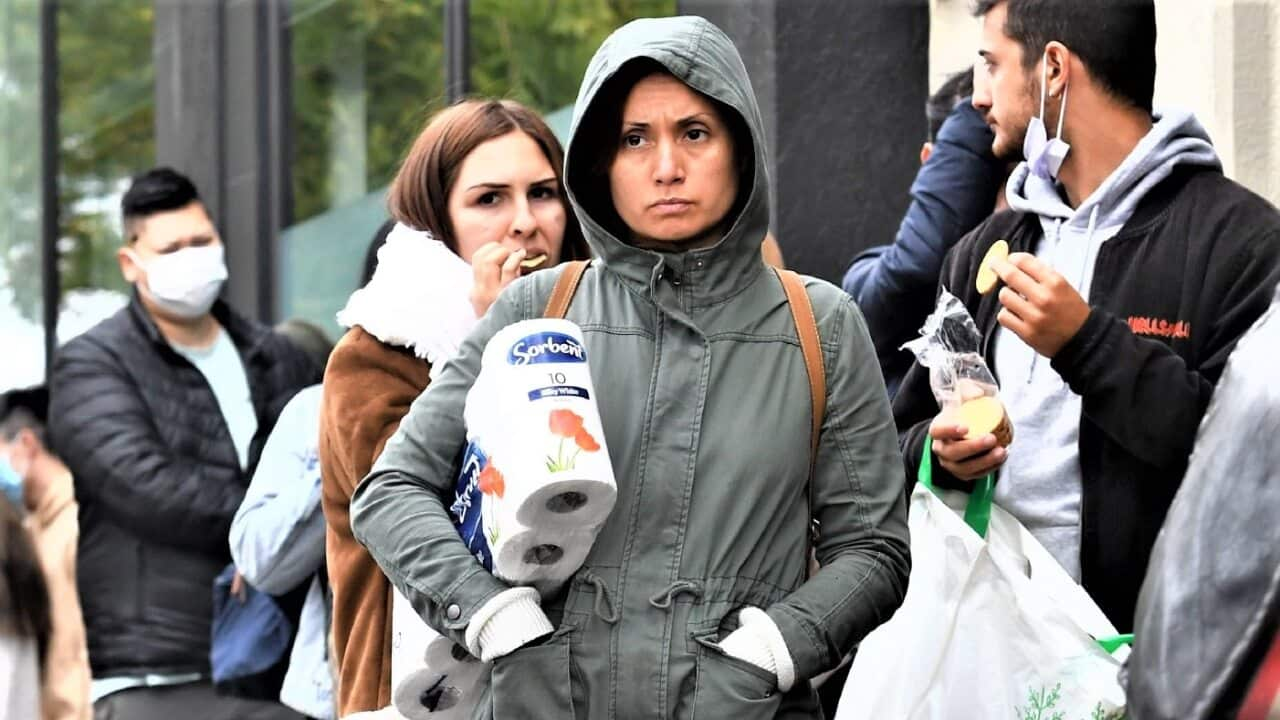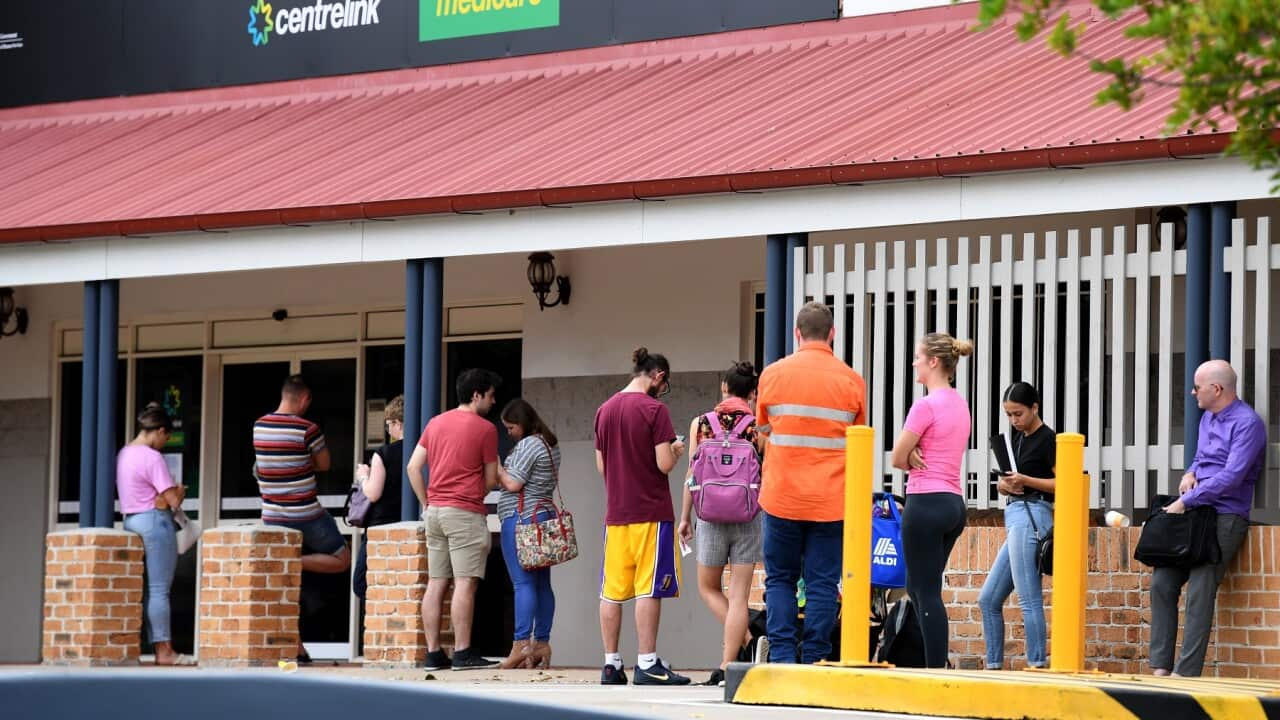Prime Minister Scott Morrison says young people have been the worst hit in the latest jobless figures - with more than 311,000 of those aged between 15 and 24 now out of work.
The youth unemployment rate has risen from 14.1 per cent to 16.1 per cent, well above the national average of 7.1 per cent.
Meanwhile, the youth participation rate is at its lowest on record with only around three in five young people participating in the labour market.
Prime Minister Morrison has recognised the impact of the recession being felt by young people, declaring the government "must get Australians back to work". “Young people have been most affected in these numbers,” he said on Thursday.
“Young people have been most affected in these numbers,” he said on Thursday.

Prime Minister Scott Morrison. Source: AAP
“But my hope is that, equally as the economy opens up, they will hopefully also be the first to benefit from the economy opening up.”
Business shutdowns forced by the coronavirus pandemic have disproportionately hit young people, given their reliance on casual employment in sectors like the hospitality and retail industries.
Per Capita research economist Shirley Jackson told SBS News the problem is getting worse as the pandemic exposes the insecurity of the labour market for young people.
“This is absolutely an implosion of the youth labour market – the COVID crisis has just shown the fractures and fissures that were already (there),” he said.
“The labour market has been collapsing for young people and it’s not able to provide secure and sustainable jobs.”
Mr Jackson said the youth unemployment crisis preceded the impact of the pandemic and a new approach is required to make sure young people can return to more secure work.
"It really is an ongoing problem in the youth labour market and this has just exposed all of those issues," he said.
Australia's unemployment rate jumped to a seasonally adjusted 7.1 per cent in May, with 227,700 jobs lost during the month.
The jobless figures are the worst since October 2001.
Labor’s employment spokesman Brendan O’Connor agreed young people have been the biggest casualties of the unemployment crisis.
“Behind all of these statistics are young people who no longer have a workplace to go to, are struggling to afford the basics like food and rent, and are facing an uncertain and scary future,” he said.
“The less done to protect jobs and support vulnerable workers, including our young people, in the coming months, the harder and longer the recovery will be.” The opposition has called on the prime minister to show leadership on the youth unemployment crisis by ensuring people aren't left behind.
The opposition has called on the prime minister to show leadership on the youth unemployment crisis by ensuring people aren't left behind.

Labor's employment spokesperson Brendan O'Connor. Source: AAP
Economist Stephen Koukoulas said that, despite the economy starting to reopen as coronavirus restrictions ease, it could still be some time until employment rebounds, particularly for younger workers.
“The crisis and the recession that’s gone with it have really impacted young people,” he told SBS News.
“We really need the economy to not just reopen but to fire to really get some momentum going for these jobs to be recreated and those unemployment numbers to come back down.”
He said past experiences of financial crises has shown there is a risk those who become unemployed can face a tough time returning to the workforce.
The federal government's JobKeeper wage subsidy, which covers some 3.5 million workers, has also held back the youth unemployment figure, Mr Koukoulas said.
Mr Morrison said he was determined to get young people who are out of work back into a job.
“If you have young people not in a job before they are between 22 and 25… that can lead to a lifetime (of) welfare dependency,” he said.
“Getting people back into jobs right across the board, and we have got to look at everything we can do.”
Additional reporting by AAP



